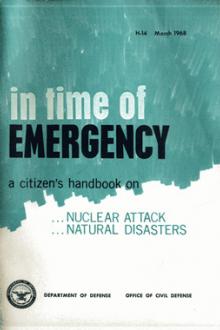Beautiful Things by Hunter Biden (books on motivation .txt) 📗

- Author: Hunter Biden
Book online «Beautiful Things by Hunter Biden (books on motivation .txt) 📗». Author Hunter Biden
The family also owned a controlling stake in General Motors from 1917 until 1957, when the U.S. Supreme Court ordered it to divest its shares, saying its control created a monopoly that interfered with the free flow of commerce. One lasting sign of the family’s passion for cars: the DuPont Highway (U.S. Routes 13 and 113), which parallels the top of the state to the bottom, was built by T. Coleman du Pont to improve transportation for farmers and other businesses within Delaware. It also gave him a smooth, unimpeded road on which to enjoy his long Sunday drives.
The lower part of the state has traditionally been more rural, white, and Southern. If you grew up in Sussex County, you simply said you were from “below the canal.” Farmers there raise corn, soy, and broiler chickens, which outnumber the state’s residents by about 200 to 1.
Beau and I saw all of it. Union halls and Democratic Party picnics were as much a part of our growing up as tree forts and sleepovers. Before we could walk, our mommy toted us around in picnic baskets to rallies and meet-and-greets and door-knocking campaigns in a state where you could almost literally rap on every door. As we got older, Beau and I stood inside the Bethel African Methodist Episcopal Church in Wilmington, waiting as Sunday services let out so we could shake hands with Black parishioners streaming out of the stone church’s big red doors. We tagged along with Dad to rural Kent County, dropping in on people whose families had owned the same chicken farms for a hundred years. We’d drive farther south, into Sussex County, where Beau and I would bid each other up on a coconut cream pie (Dad’s favorite) in auctions held for churches or school fundraisers. Sometimes we were the only bidders.
While most Southerners consider Delaware to be Northern, a community like Gumboro, near the Great Cypress Swamp and host each year to the Gumboro Mud Bog, is every bit as Southern as a small town in Georgia.
Given that diverse crucible, it’s easy to trace my dad’s, and later Beau’s, seemingly innate political ability to relate with people of all backgrounds, races, and ideological leanings. Growing up in Delaware doesn’t mean you’re automatically aware of what a microcosm it is. But when you grow up in Delaware the son of Joe Biden, you have no choice. You not only learn how to get along with all kinds of people, you come to understand what motivates them, what they care about, and what they really need.
That’s the state that adopted Beau and me when our mother died.
Beau and I never really grieved the loss of our mother and baby sister.
We never thought it was something we had to grieve.
This was in part, of course, because we were so young. But more than that, it was because of our father’s heroic marshaling of family to surround and enfold us in uninterrupted love.
Beau and I talked about that often as we got older—how lucky we were despite the tragedy. We were almost ashamed to admit to any sadness we might have felt because of how enveloped we were in that familial embrace. It almost felt like a betrayal to say that we missed our mom when, nearly from the moment we left the hospital, we had my dad’s sister—Aunt Val—move in and not only take care of our immediate daily needs but also be as warm and tender and emotive as a mother figure could possibly be. My dad’s brother Uncle Jimmy converted our garage into an apartment so that he could be a constant presence in our lives. We were also tended to by our many other uncles and aunts, as well as by our grandparents—I still remember my grandmother making me feel better simply with a soft hand on my face, or scratching my back in bed, or warming up a bowl of her homemade beef-vegetable soup.
I don’t think I’ve ever fully come to terms with the violence of the actual incident, regardless of whether I’ve conjured it in my mind’s eye as an actual memory or if it remains buried in my subconscious. The fact is, it exists: it happened, and Beau and I were there.
The one thing he and I never asked each other was this: “What do you remember?” I don’t know why. I don’t know if it even occurred to either of us to ask.
I think we both absorbed that day and its aftermath in similar ways, but the effects manifested themselves differently in each of us. I really believe that its trauma and stress contributed to my brother’s health problems. He kept so much of it locked inside, and I can’t help but think it eventually took a toll, no matter how positively he always viewed things.
As for me, I want to make it clear: I don’t see that tragic moment as necessarily resulting in behaviors that lent themselves to addiction. That would be a cop-out. But I do have a better understanding of why I feel the way I do sometimes, the unease I’ve experienced at incongruous moments, especially around other people—at social gatherings, political functions, random encounters in a school or at an airport or during a meeting. It was a lonely place to be as a child, and it’s a lonely place to be now. That kind of insecurity is almost universal among those with real addiction issues—a feeling of being alone in a crowd.
I’ve always felt alone in a crowd.
Yet while we didn’t talk about it as kids, I was hyperaware of my mommy’s death—and hyperaware of her absence. I loved hearing relatives’ stories about her, holding tight to their portrayals of how special she was, how tough she





Comments (0)